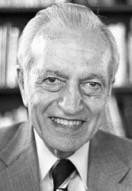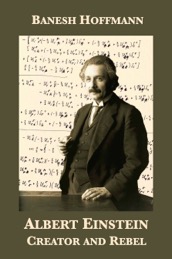
Hoffmann was a gifted expositor of science, noted for his ability to explain and popularize the complex theories of modern physics to the general public. The British scientific magazine Discovery wrote about The Strange Story of the Quantum (1947), Hoffmann’s first book: “This book should become one of the great classics of popular but intelligent science writing...” Yale Professor Henry Margenau added: “Of the books attempting an account of the history and contents of modern atomic physics which have come to my attention, this is the best.”
Hoffmann worked in various areas, including relativity, quantum theory, and applications of tensor analysis to electrical engineering. An accomplished amateur pianist, he played on occasion piano-violin duets with fellow amateur musician Einstein. He was a Sherlock Holmes “Baker Street Irregular” and wrote the short story Sherlock, Shakespeare and the Bomb. An early and persistent critic challenging the scientific validity of standardized multiple-choice testing, he served for 25 years as a consultant on tests for the Westinghouse Science Talent Search and published The Tyranny of Testing (1962). His Albert Einstein: Creator and Rebel, written with the collaboration of Helen Dukas, Einstein’s secretary since 1927 until his death in 1955, first appeared in 1972.
Banesh Hoffmann was married to Doris Goodday and had two children, Laurence, a mathematician and financial advisor, and Deborah, an award-winning documentary filmmaker.
Click on the cover for details about the eBook:




